Vauxhall is positioning itself to become a major player in the electric vehicle (EV) market by focusing on customer education, affordability and building trust in the brand.
Speaking at the recent international test drive of the new electric - and hybrid - Grandland in Frankfurt, James Taylor, Vauxhall’s managing director, discussed how the brand plans to support dealerships, attract new customers, and make the transition to EVs smoother for consumers,
Underpinning those goals is the car maker's Electric Streets strategy to make sure as many people as possible can access electric, something that will prove critical as it prepares to launch the new Grandland, its first large electric SUV.
Vauxhall is positioning itself to become a major player in the electric vehicle (EV) market by focusing on customer education, affordability and building trust in the brand.
Speaking at the recent international test drive of the new electric - and hybrid - Grandland in Frankfurt, James Taylor, Vauxhall’s managing director, discussed how the brand plans to support dealerships, attract new customers, and make the transition to EVs smoother for consumers,
Underpinning those goals is the car maker's Electric Streets strategy to make sure as many people as possible can access electric, something that will prove critical as it prepares to launch the new Grandland, its first large electric SUV.
Read more about the new Vauxhall Grandland Electric
“With clear goals and a comprehensive strategy in place, Vauxhall aims to make its mark on the electric revolution, one customer at a time,” he says.
Taylor adds that it is important to address the practical concerns of potential EV buyers, particularly around charging infrastructure.
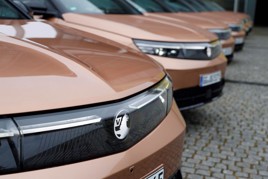 According to its own research, in the UK, 40% of households don’t have access to off-street parking, making home charging a challenge for many.
According to its own research, in the UK, 40% of households don’t have access to off-street parking, making home charging a challenge for many.
Taylor noted that charging typically happens at home, and for those without that option, the issue can become a significant barrier to EV adoption.
“The whole reason we launched initiatives like free charging credits at Tesco was to make sure that the 60% of drivers who don’t have off-street parking weren’t locked out of the electric revolution,” Taylor explained.
This initiative is a vital part of Vauxhall’s effort to make EVs more accessible to a wider audience especially as it stakes its future on bigger and better EVs.
The launch of the Grandland marks Vauxhall’s first step into a segment it has never been part of before: large electric SUVs.
This shift is significant for the brand, which has primarily focused on smaller vehicles and internal combustion engine models in the past.
"We need to recognise we're going into a segment we've never played in before," Taylor acknowledged.
Certainly, the new electric SUV not only comes with higher price points but also targets a different customer base than Vauxhall is used to, necessitating a new approach.
“Helping customers make that transition to electric, especially with bigger cars where price points get slightly higher, is key,” explains Taylor.
He adds that it is particularly important for Vauxhall to support dealerships in this process, ensuring that they are well-equipped to guide customers through what can be a daunting switch.
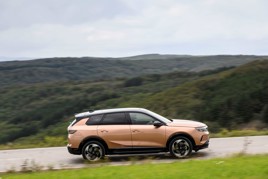
The larger price tags and unfamiliar technology mean that customers may have more questions, especially those interacting with the Vauxhall brand for the first time.
In terms of pricing and affordability, Vauxhall is also taking steps to ensure that the transition to EVs doesn’t feel financially overwhelming for customers.
One major part of its strategy therefore is offering a five-year Personal Contract Purchase (PCP) plan, which spreads out payments over a longer period to make monthly costs more manageable.
 “What we’re doing with dealers is making sure that despite the higher price points, customers are having realistic conversations,” Taylor said, acknowledging that while owning an electric car over five years may be more expensive overall, the key is making it as affordable as possible upfront to encourage more people to take the plunge.
“What we’re doing with dealers is making sure that despite the higher price points, customers are having realistic conversations,” Taylor said, acknowledging that while owning an electric car over five years may be more expensive overall, the key is making it as affordable as possible upfront to encourage more people to take the plunge.
Vauxhall’s approach to financing is designed to be transparent and fair with no hidden costs. “Consumers are savvy. They know that it’s an extra year of payments, but we’ve been very clear that the goal is to keep the entry point accessible,” he says.
This honesty will be crucial in building trust with customers, he believes, particularly as the brand sees its new EV range as a major opportunity to increase conquest sales - customers who switch from other brands.
Traditionally, around 65% of Vauxhall’s sales come from loyal repeat customers, with the rest coming from people new to the brand.
But Taylor believes EVs provide a unique chance to change that split. “Electric gives us a massive opportunity because people are much more fluid in their choices now. They’re willing to try different brands when it comes to electric, and that’s something we want to capitalise on,” he said.
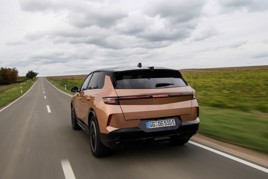 Vauxhall’s strategy is to offer a trusted, familiar name with the latest electric technology, providing a sense of brand security. Taylor explains.
Vauxhall’s strategy is to offer a trusted, familiar name with the latest electric technology, providing a sense of brand security. Taylor explains.
“We think EVs give us a chance to conquest from competitors like Hyundai and Kia, as people are more willing to try something new, but they may still prefer a household name like Vauxhall.”
Looking ahead, Taylor lays out several ambitious goals for 2025. Vauxhall aims to significantly increase its market share in the compact SUV segment, which is the largest and fastest-growing sector of the market.
“Our number one objective for 2025 is to get Vauxhall back to the top of the C-SUV sales charts,” he said. The company’s plan includes launching two new models, including a premium luxury SUV, with the goal of increasing sales from 4,000 units a year to somewhere between 10,000 and 12,000 units annually.
“If we can do that, not only will our market share benefit, but our network will be in a much stronger position as well,” Taylor explained.
The Vauxhall chief also acknowledged that while the long-term shift to EVs will be crucial for Vauxhall’s success, it comes with challenges.
The extended five-year PCP plan, while beneficial for customers in the short term, risks reducing the frequency of renewals. “Over a 20-year cycle, you’re selling a customer four cars instead of five,” Taylor notes.
However, he is confident that once customers make the switch to electric, they’re unlikely to go back to petrol or diesel, meaning the long-term loyalty to Vauxhall’s electric offerings will potemtially outweigh any short-term volume concerns.
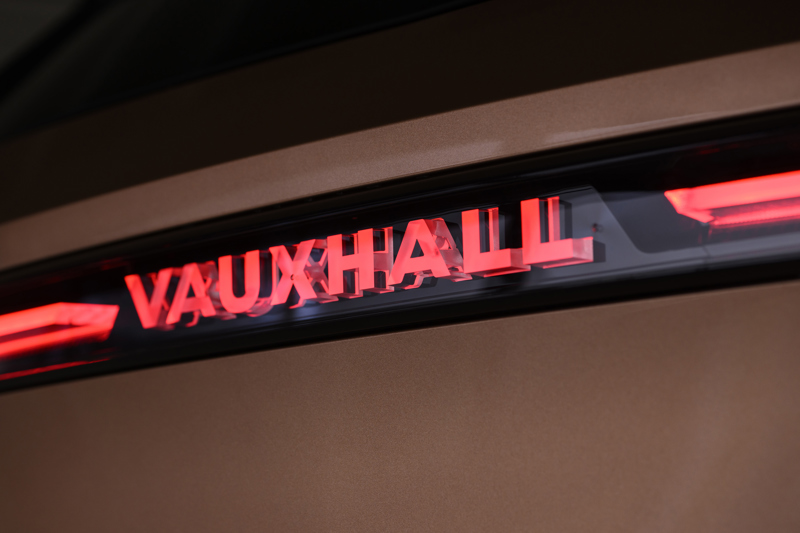
Login to continue reading
Or register with AM-online to keep up to date with the latest UK automotive retail industry news and insight.

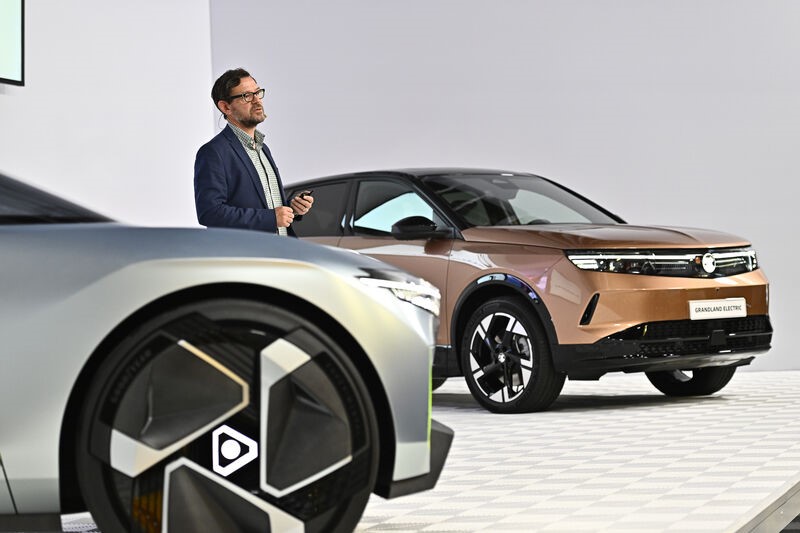


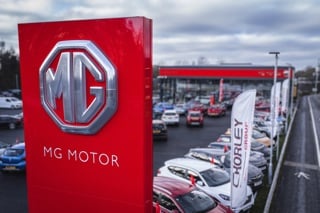
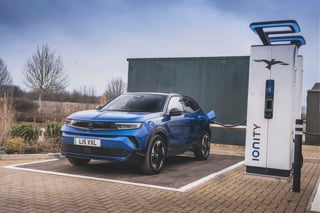














Login to comment
Comments
No comments have been made yet.